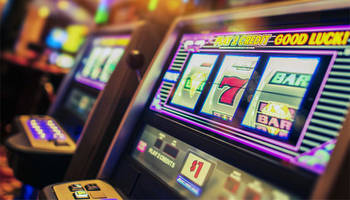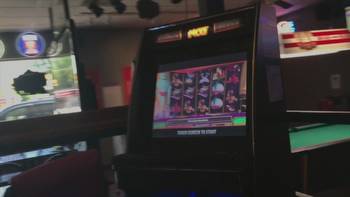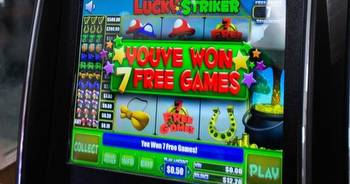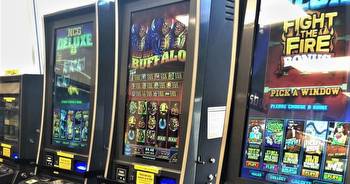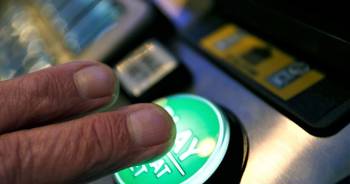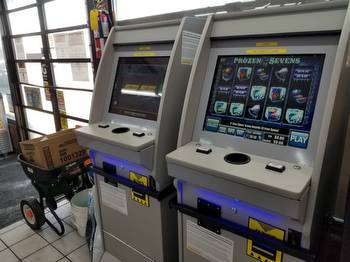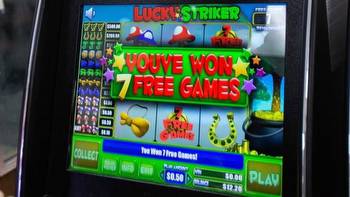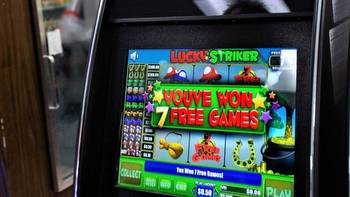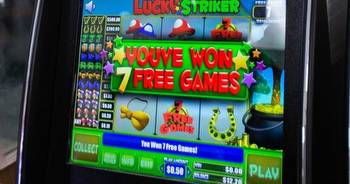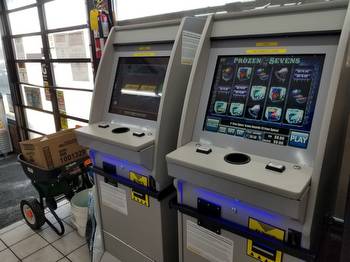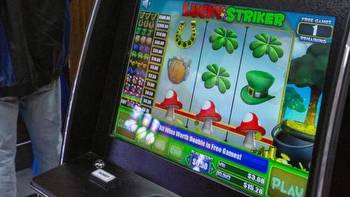Defeat of gambling bill likely dooms legislative push against ‘gray market’ machines
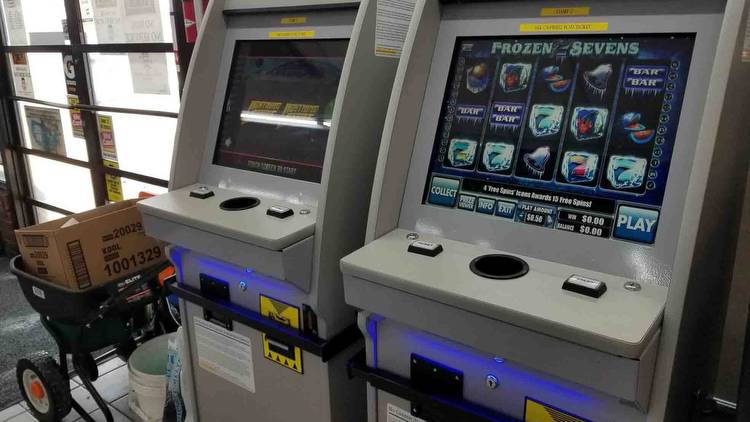
The Missouri Senate has defeated a three-pronged effort to expand gambling in Missouri while suppressing unregulated devices that offer cash prizes to players.
The vote that defeated the bill may have been the last chance this legislative session to address the proliferation of devices that some prosecutors have attacked as illegal and that others have refused to file charges over.
“I am disappointed Senate Bill 98 reached an impasse on the Senate floor last night,” the sponsor, state Sen. Denny Hoskins, said in a statement released after Tuesday's vote.
Hoskins, R-Warrensburg, accused casino companies and companies placing the “gray market” machines in bars, convenience stores and other retail locations of working to undermine his bill.
“For them, it seems, the proliferation of illegal gaming in Missouri is not just an acceptable outcome, but an outcome that is preferable to regulation,” Hoskins said. “I have impressed upon my colleagues (that) illegal gaming will continue to spread across our state until we take action to regulate it.”
The bill could be revived, but prospects for action before lawmakers adjourn on May 14 are fading. The biggest push for new gambling regulations has been in the Senate, while similar bills in the House have yet to receive a hearing.
The bill debated Tuesday would have:
• Authorized up to 10,000 video game terminals in bars and truck stops as well as fraternal and veterans’ organizations. No location could have more than five machines.
• Allowed the Missouri Gaming Commission to license the state’s 13 casinos to offer sports wagering.
• Revised laws on illegal gambling to remove any uncertainty about the legality of what are called “gray market” machines.
Taxes on the video terminals and sports wagering would have brought in an estimated $200 million annually for education programs.
The push toward passage unraveled after the Senate approved an amendment offered by Sen. Mike Moon, R-Ash Grove, to send the bill to a public vote.
If voters defeated the bill, Hoskins told Moon, it would mean no video lottery terminals or sports wagering. But that would also defeat the language removing uncertainty about the gray market machines, signalling to the courts that voters consider them legal, Hoskins said.
“I know your intent was good,” Hoskins said to Moon. “You have told me you are against gaming and what you have done has just expanded gaming to the state one way or another.”
Moon disputed that. If voters defeated the proposal, he said, the law would remain as is.
“If something is illegal, it would still be illegal,” Moon said.
Thousands of machines
The exact number of video machines offering payoffs of hundreds or thousands of dollars in convenience stores and other retail locations is unknown, but estimates range from 14,000 to 20,000.
The bill is one of the most heavily lobbied of the session. Casinos are eager for the extra revenue from sports wagering, and providers of electronic games see a payday in the lottery terminals.
The bill is also being lobbied by representatives of the companies that own the machines some prosecutors are targeting. One of those companies, Torch Electronics, is suing the Missouri State Highway Patrol and other agencies in Cole County, seeking a ruling that its machines are legal that would order law enforcement to cease prosecutions.
Torch Electronics is charged with felony promotion of gambling in Linn County. James McNutt, president of Midwest Petroleum – Torch’s co-plaintiff in the Cole County lawsuit – is charged with a misdemeanor gambling violation in Franklin County.
But many prosecutors are reluctant to file charges.
Of the 190 probable cause statements – requests for charges based on a particular set of facts – sent to prosecutors by Missouri State Highway Patrol investigators in 2019 and 2020, only 26 cases alleging illegal gambling, including eight felony charges, were filed.
There has been one guilty plea and one conviction in cases involving the machines.
The companies that provide the machines contend are legal because they have a “pre-reveal” feature that allows players to know the outcome of their next bet.
The low number of prosecutions was used Tuesday by attorney David Steelman to argue for a judge to dismiss a case in Linn County.
Steelman represents Tritium International Consulting, a Florida company that says its machines are electronic raffle devices, not slot machines. The company offers the machines to not-for-profit fraternal and veterans organizations, which are allowed to operate raffles under the state constitution.
“These machines are now in 39 counties, and of 39 counties, 38 prosecutors have not prosecuted and one has,” Steelman said.
Prosecuting Attorney Shiante McMahon said the devices operate like slot machines and do not meet the commonly understood definition of a raffle.
“Our experts, and the Highway Patrol, would say that it functions as a slot machine,” she said. “That meets the burden under the statute that it is an unlawful gambling machine.”
Steelman argued that the case should be dismissed because McMahon had not shown she could prove essential elements of the case. She argued that was a decision for a jury and the case should not be dismissed.
Circuit Judge Russell Steele said he would rule soon on the motion.
The legislation to remove any ambiguities in state law is a top priority of Senate President Pro Tem Dave Schatz, R-Sullivan. The machines arrive with stickers on them declaring they do not violate state gambling laws, and convenience store owners are reaping large profits.
Hoskins’ bill would have given retailers 10 days to remove the machines once they are notified that they are operating illegal gambling devices. Schatz said he thinks that would be enough to persuade most retailers to remove the machines.
“I think a lot of these store owners have been sold a bill of goods,” Schatz said.











